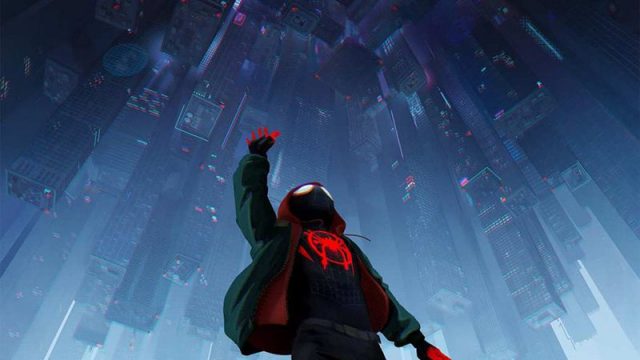It seems impossible to talk about Spider-Man: Into the Spider-Verse without bringing up its gorgeous animation style. The filmmakers have spoken at length about how much time and effort went into crafting the film’s unique look. But when the animators themselves take viewers through certain scenes, we can’t help but marvel at their artistic genius. A new video courtesy of Wired features a sitdown with visual effects supervisor Danny Dimian and animation supervisor Joshua Beveridge. During the interview, the pair discussed the “new visual language” their teams created that led to the film’s Oscar-winning success.
When deciding on how the film should be presented, Dimian and Beveridge went straight to the source material. Specifically, they drew influence from Jack Kirby and his signature use of “Kirby Krackle” and dots in his illustrations. Dimian also explained that they wanted to avoid conventional tropes that “did not look like they belonged in the illustrated world” such as motion blur or camera focus. As a result, every paused frame could just as easily pass for a comic book panel.
One of the first scenes Dimian and Beveridge discussed was the film’s introduction to Miles Morales as he sings along to Post Malone’s “Sunflower” in his bedroom. “This very first shot of Miles I love because we got to do this one at the very very end of the movie,” Beveridge said. “We did that one specifically so late because the song was being written while we were making it, so we actually started animating before the song he’s singing to was finished.”
RELATED: Director Reveals Cut Stan Lee Lines From Into The Spider-Verse
Additionally, Dimian and Beveridge discussed the scene in which Miles walks through his Brooklyn stomping grounds. Motif-wise, the goal for this scene is to make him as in-his-element as possible,” Beveridge explained. “He’s in his neighborhood, he loves this place, and he’s comfortable there.”
However, Dimian points out that once Miles arrives at his elite prep school, the mood completely changes. “The lighting starts to get a little harsher and we kind of leave some of the comfort of his environment,” said Dimian.
The two supervisors went on to pick apart a handful of other memorable moments in the film. But most interestingly, they shed light on their use of “color blobs” in place of fully rendered people or objects. It proved to be a visionary decision that paid off in the end. Among other topics, they touched on the film’s rendering of New York and its boroughs as well as the types of camera movement used to give the movie its now infamous “pop-art feel.”
Spider-Man: Into the Spider-Verse is now available to on Blu-ray, DVD, and digital download. You can hear Dimian and Beveridge’s remarks for yourself below, then share your thoughts in the comment section!




